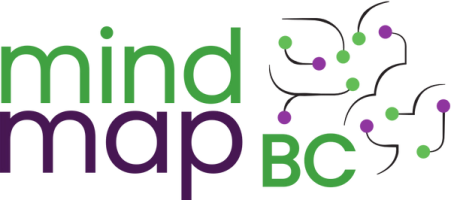Stillwaters Counselling
Summary
Individual counselling
FNHA
Sliding Scale Available
Youth
2S/LGBTQ+ Affirming
Trans Affirming
Two-Spirit Affirming
LGBQ+ Affirming
Online resource
Remote services
As a queer and non-binary person, I bring the strength of lived experience to my sessions. I understand deeply how it feels to live in a heteronormative or cisnormative world, and how that can impact different areas of our lives. My practice is also focused on supporting neurodivergent people, particularly those living with ADHD or autism spectrum disorders. In short, I work with people who know what it's like to live a little bit outside the normal, the expected, and the accepted, and who have different needs and different ways of seeing things.
Want to learn more about this service’s work with Two-Spirit, trans, LGBQ+ people?
We invite all service providers listed on MindMapBC to answer the following questions. These questions were developed in collaboration with community members, researchers, and mental health and other service providers. They're intended to help us understand what a service provider or organization is doing to affirm and support sexual and gender diverse service users.
See below for responses for this listing.
Want to learn more about our screening questions and filters?
Are the forms used in your practice inclusive of various sexual orientations and gender identities (e.g., opportunities to fill in pronouns, etc.)?
—Yes
As a queer and non-binary person, it is of the utmost importance to me to provide counselling that is accessible to all gender identities and sexual orientations. This is reflected in my forms and in my practice.
Do you collect and use preferred names (rather than legal names) for all communications?
—Yes
Preferred names are collected during my intake process and used consistently during counselling and other communications - unless a client requests a legal name being used for a specific reason (ie. receipts for insurance).
Do you and your colleagues have experience providing services that support clients with navigating gender dysphoria*?
*TransCareBC describes gender dysphoria as a term "intended to describe the distress some trans people experience with relation to their gender identity, particularly if they would like to transition but have not yet done so".
—Yes
Yes, I have specialized training in supporting those experiencing gender dysphoria, and this is one of the main areas of focus in my practice.
Please tell us how equipped you feel to support a client in determining if/when their mental health symptoms are related to their gender-related experiences or other factors? Please describe your response choice below.
—Somewhat confident
I have advanced training in mental health diagnosis and assessment, and at the same time, I trust my client's wisdom about their mental health.
Do you/your colleagues understand the difference between gender dysphoria and mental health conditions/symptoms that are unrelated to gender dysphoria or distress?
—Yes
Yes, I have advanced training in working with gender dysphoria as well as advanced training in mental health diagnosis and assessment. I am careful not to assume that all mental health symptoms gender diverse people experience are related to their gender, and at the same time, I always consider the impact of transphobia and cisnormativity on my client's mental health.
Do you and your colleagues have experience working with people who identify as living with a disability or chronic illness? Please tell us more about your experience and any training you have received.
—Yes
My practice is specialized in supporting neurodivergent people. I strive to find a balance between enhancing self-acceptance (particularly after the ongoing experiences of rejection many neurodivergent people experience in a neurotypical world) and offering skills to help improve quality of life within that world and to help meet my client's personal goals.
Are you and your colleagues aware of what specific barriers may exist for Two-Spirit, queer, or trans Indigenous individuals accessing your services?
—Yes
I understand that mental healthcare has been part of a history of colonization, and that this presents specific barriers to Indigenous clients. Furthermore, as a white queer clinician, my experiences do not necessary reflect the experiences of gender, sexuality, or exclusion my clients have faced.
Are you and your colleagues aware of what specific barriers may exist for LGBQ individuals accessing your services?
—Yes
As a queer and non-binary person, I am very aware of these barriers.
Are you and your colleagues comfortable asking relevant questions about gender identity and sexual orientation?
—Yes
These questions are regularly part of my intake process.
Do you offer Indigenous 2S/LGBTQ+ specific resources, for example Indigenous Elders or Knowledge Keepers?
—Yes, to some extent
I accept FNHA funding and can offer referrals to relevant community services for my Indigenous clients.
Do you and your colleagues ask clients about pronouns and use them appropriately?
—Yes
Yes, always.
Are you and your colleagues aware of what specific barriers may exist for trans individuals accessing your services?
—Yes
Yes, as a non-binary person myself I am very aware of this.
Does your practice have gender-neutral washrooms?
—Not applicable (please explain why this is not applicable)
Online only service
Are there clear anti-discrimination policies that include gender identity, gender expression, and sexual orientation in your organization or practice?
—Yes
As a queer and trans affirming counselling practice, this is at the foundation of my practice.
Are all individuals involved in service provision actively engaged in decolonizing their practices and/or organization? If yes, please type below what actions you and/or your organization are taking.
—Yes
I am engaged in ongoing professional development in the area of decolonization and anti-racism and I offer a sliding scale rate to BIPOC people.
Are all individuals involved in service provision actively engaged in anti-racist practices, policies, and systems in their care model?
—Yes
Yes, both myself and my other counselling associate are actively engaged in this work.
Last updated: February 26, 2023
Request changes —

